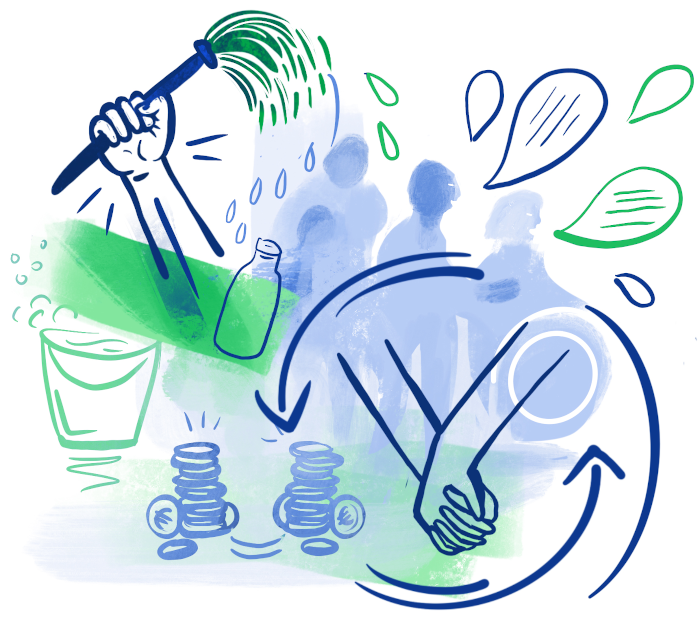Just Reproduction, Production and Consumption

While the question of how it can be possible to save as much → greenhouse gas as possible in a socially just manner is the center of attention in the other sections of the grassroots climate plan, the question for this section on just reproduction, production and consumption is somewhat different: it is not about explicit, specifically commensurable measures to save greenhouse gas, but to create economic framework conditions that make these savings possible in a socially just way.
Economics includes not only the productive sector, which is the most CO2-intensive, but also paid and unpaid care or reproduction activities and consumption - and at the same time takes into account the just distribution of social wealth.
The measures collected here are facing the challenge of an relationship between economic growth and emissions or nature consumption. So far, sensible climate protection measures have mostly been sacrificed on the altar of economic growth. Since there is no chance to uncouple economic growth and resource consumption (as studies have shown several times), the whole German economy must at least stop being growth-dependent, if it is not shrinking. Since, under the current economic framework, a decline in growth or a shrinking of the economy would lead to a crisis spiral, changes in the framework conditions are proposed here that enable a post-growth economy, while at the same time enable human needs. Economic sectors such as renewable energies, ecological agriculture and also care activities can still grow: since they have lower growth rates than climate-damaging production areas, such a shift in the gross domestic product (GDP) is reflected in shrinking - while the common good grows.
- Jason Hickel & Giorgos Kallis (2019): Is Green Growth Possible?. New Political Economy. https://doi.org/10.1080/13563467.2019.1598964
- European Environmental Bureau: Decoupling Debunked (2019, abgerufen 22.2.2020) https://eeb.org/library/decoupling-debunked/